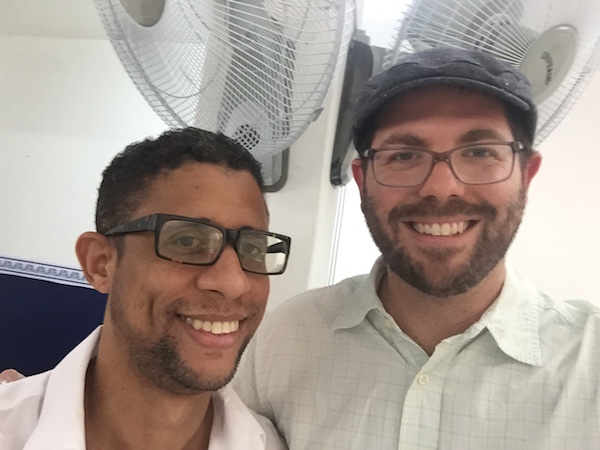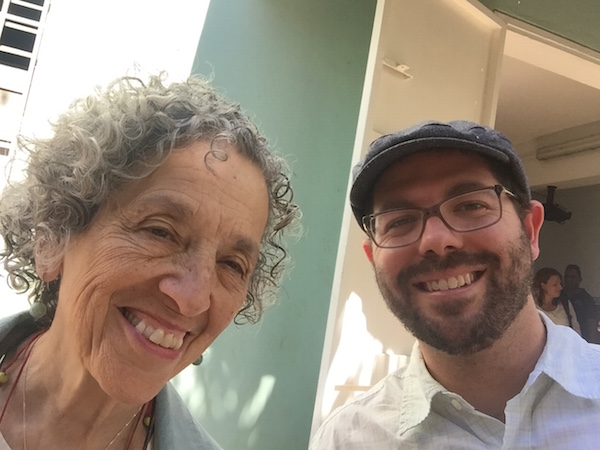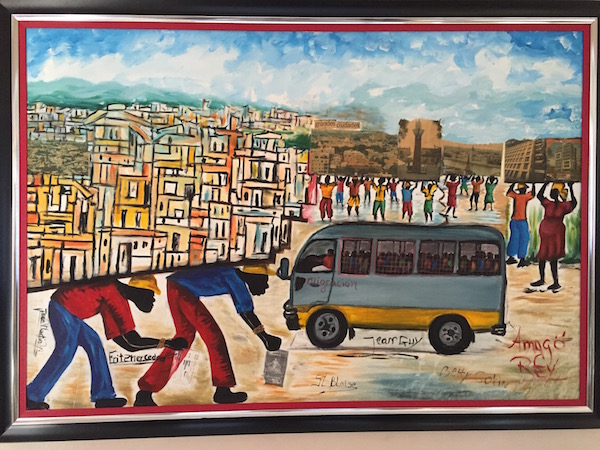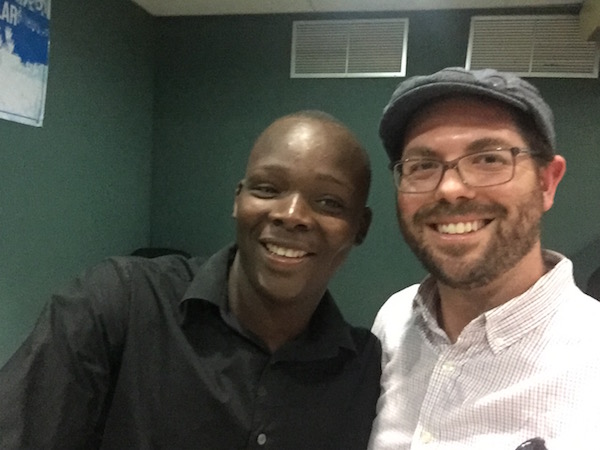Local Rabbi Defends Human Rights in the Dominican Republic
- Wednesday, 17 February 2016 15:14
- Last Updated: Wednesday, 17 February 2016 15:32
- Published: Wednesday, 17 February 2016 15:14
- Joanne Wallenstein
- Hits: 6229
 Rabbi Brown from Scarsdale Synagogue recently took a trip with the American Jewish World Service (AJWS) to visit the Dominican Republic as part of the AJWS Global Justice Fellowship mission. The rabbinical delegation, comprised to ten rabbis, travelled across the Dominican Republic, meeting with AJWS grantees working to address some of the most pressing human rights issues in the region.
Rabbi Brown from Scarsdale Synagogue recently took a trip with the American Jewish World Service (AJWS) to visit the Dominican Republic as part of the AJWS Global Justice Fellowship mission. The rabbinical delegation, comprised to ten rabbis, travelled across the Dominican Republic, meeting with AJWS grantees working to address some of the most pressing human rights issues in the region.
"Our trip focused heavily on the Dominican government's  policies related to residents of Haitian descent," Rabbi Brown said, "which is threatening to strip citizenship rights from hundreds of thousands of Dominicans simply because they have ancestors from Haiti." On the mission, he learned more about what has been characterized by AJWS and other human rights organizations as a "cynical, bureaucratic government response" to Dominicans of Haitian descent who wish to retain their citizenship rights.
policies related to residents of Haitian descent," Rabbi Brown said, "which is threatening to strip citizenship rights from hundreds of thousands of Dominicans simply because they have ancestors from Haiti." On the mission, he learned more about what has been characterized by AJWS and other human rights organizations as a "cynical, bureaucratic government response" to Dominicans of Haitian descent who wish to retain their citizenship rights.
Rabbi Brown noted that many Dominicans or Haitian ancestry have been "marginalized by their government because of their poverty, gender, sexual orientation, skin color, occupation, or ancestry. But I witnessed, with my own eyes," he continued, "that there is the possibility of change, spurred by the community-based activities of the many new friends I was fortunate to make while traveling throughout the Dominican Republic. This mission enabled me to bear witness to the power of morally motivated community leaders, bolstered by the generous financial support of the worldwide AWJS organization, to try to make this part of our planet a better place."
 "In that same vein," Rabbi Brown concluded, "it is part of my spiritual commitment -- and my very being -- to help fulfill the duty we have as Jews to stand up against injustice and preserve, protect and advance human dignity."
"In that same vein," Rabbi Brown concluded, "it is part of my spiritual commitment -- and my very being -- to help fulfill the duty we have as Jews to stand up against injustice and preserve, protect and advance human dignity."
We asked Rabbi Brown a few questions and here is what he shared:
Was this your first AWJS trip?
It was my first international travel with AJWS. I am proud that Scarsdale Synagogue has collaborated on several programs/speakers with AJWS over the last few years.
Did the delegation meet with officials in the Dominican Government?
We did not meet with any officials from the Dominican government. We did meet with Deivis Ventura, the first openly gay politician to seek federal elected office there. And we met with American embassy officials in the D.R.
How are Jews received there?
My limited understanding is that there is not a lot of anti-Semitism there. (FYI, the D.R.'s Jewish population is quite small.) When it comes to relations with Jews, the D.R.'s "claim to fame" is that it was one of the very few Western hemisphere countries to welcome in Jews fleeing from Europe during World War II.
But the truth is that our journey was singularly focused on AJWS's on-the-ground development work that it is doing with local Dominican NGO's.... training locals to advocate for themselves and their communities. In terms of issue areas - AJWS focuses on the issue of statelessness and the issue of gender/sexual orientation discrimination in the D.R.
What were your main takeaways from your meeting?
The journey was extraordinary and eye-opening. You can read my longer reflections about the trip in the series of blog posts here. But in summary, my main takeaways were:
Poverty makes everything worse. There are significant societal/cultural challenges that the D.R. must navigate in the years ahead, namely: (1) the sense of racism that exists towards those of Haitian descent; and (2) the socially accepted misogyny, which condemns too many women to the margins, and in many cases accepts gender-based violence and even femicide (the murder of a woman just because she is a woman) as a basic 'fact of life.' But these challenges are exacerbated by the widespread poverty that so many Dominicans face. According to the World Bank, one of every two Dominicans lives below the poverty line - where the poverty line is defined as earning $1.25 or more per day.
There are many different approaches to international development work, but a "human rights-based approach" - the approach of AJWS - seems to me to be the most effective. It is an approach that affirms grass roots activism and seeks to empower local residents in developing nations to be their own best advocates for social/political change. With my own eyes, I witnessed the transformative power of organizing and activism...to change Dominican society, and the lives of these activists, for the better.
Although the United States is 1572 miles from Santo Domingo, there is a lot that Americans can do to get involved. (1) We can get informed. The New York Times did a wonderful civic service on the statelessness issue, for example, by running this recent piece in the Sunday Magazine. It's an easy, accessible way for people to learn about a horrific human rights crisis going on in our backyard. (2) We can lift up our voices and let American politicians know we are concerned about the situation, and that we want the American government to use its considerable influence to lean on the Dominican authorities. Readers can add their name to the AJWS petition here. (3) Readers that are so inclined might consider making a small philanthropic gift to AJWS by clicking here. Every years, AJWS grants out tens of millions of dollars to local NGO's around the world who are empowering themselves to make their countries safer and more inclusive for everyone who lives there.






